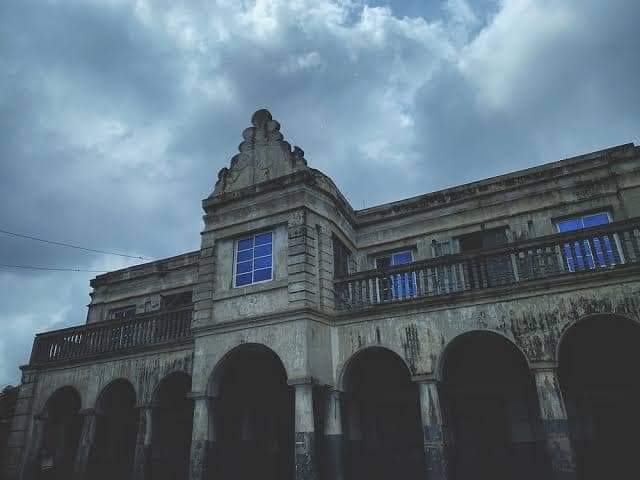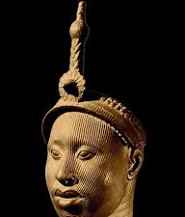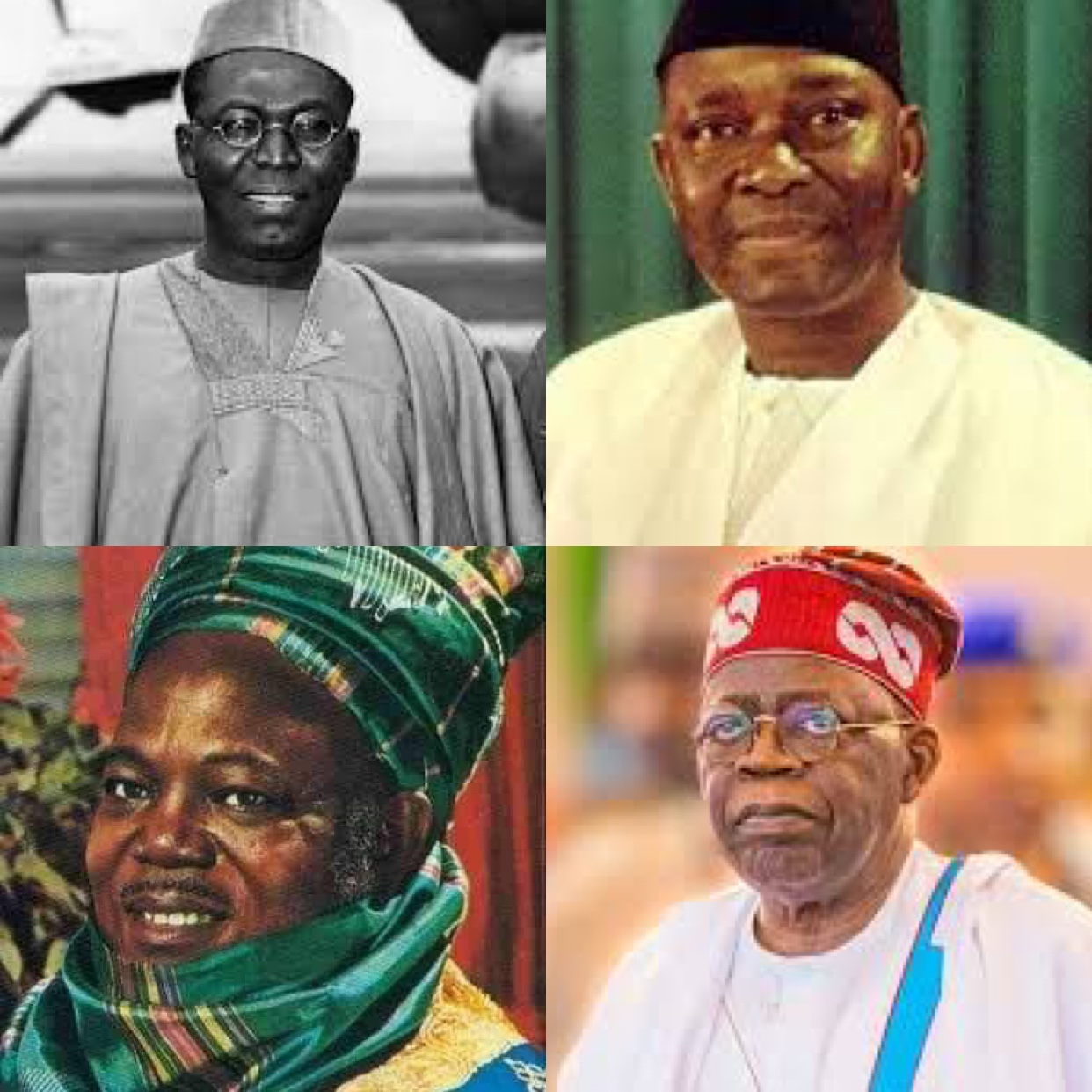Sanusi Adebisi Idikan: – The Yoruba man who paid tax for the whole of Ibadan

Hon (Barr.) Femi Kehinde
Sanusi Adebisi Idikan was an enigmatic personality that traversed Ibadan’s landscape in commerce, engaged in philanthropy and humaneness in the late 19th and 20th centuries.
He was born in 1882, in Ibadan during the reign of Aare Latoosa, the Baale of Ibadan, and died in 1938, during the reign of his bosom friend and Father In Law, Olubadan Okunola Abass Aleshinloye.
Despite being the biggest story of his time, Sanusi remained an unsung hero. Adebisi’s father, Adesina, migrated from Efon Alaaye (Ijesha Stock) in present day Ondo State.
He was an itinerant Ofi clothe weaver- a traditional Yoruba clothe, earmarked for ceremonies, marriages, burials and so on.
He moved to Ibadan with his paternal half-brother- Alabi and settled in Aremo, in the household of Lanase.
Ibadan had become then, the most cosmopolitan city in Nigeria and perhaps black Africa. It was secure, accommodating and prosperous.
Adesina whilst plying his trade of Ofi weaving, was also spiritual consultant to Alaafin Atiba, who had betrothed his most precious daughter- Princess Ogboja to him, in recognition of Adesina’s great spiritual impact in his life.
Adesina, begat three children- Adetinrin, Adeoti and Adebisi.
Adetinrin and Adeoti were 20 years and 15 years respectively, older than Adebisi.
Adebisi grew up to join his siblings in the hawking of their father’s Ofi clothes in and outside the city of Ibadan. Within a short spade of time, he enlarged the space of the business by hawking the Ofi clothes outside Ibadan- Iwo, Ile Ogbo, Ikire, Oshogbo, Ife, Ondo and even the far flung place of Benin and before the age of 18 years, he became an instant success and even had to retire his siblings from the business.
Aside Ofi business, he ventured into large scale farming, in Ashipa village, Mamu, where he developed a large cocoa plantation.
Cocoa had been introduced into Nigeria since 1874 and had by the 1890s, become Nigeria’s most notable cash crop, most especially in Yoruba land.
In Ashipa, he built a farmstead and numerous houses, for his farm workers.
The success in the Mamu cocoa plantation, encouraged him to acquire about 200 Acres of land in Apata Ibadan, where he developed another cocoa plantation.
ADEBISI BECOMES SOCIETY LEADER
In recognition of his success as a cocoa farmer and entrepreneur, he was made the Giwa Egbe (head of the society) by his other successful merchants, like Otiti, Ekolo, Afunleyin, Ladimeji from Isale Ijebu and Adeyemo Owonbuwo from Oopo-yeosa.
As Giwa of the society, he added Giwa to his name, to become Sanusi Adebisi Giwa.
Sanusi Adebisi Giwa’s acts of philanthropy were demonstrated in his first tax rescue effort in Ibadan. Payment of tax by every male adult was made compulsory by the colonial government.
Most Ibadan adults were subsistent farmers, who could not afford the payment of tax and that the punishment for tax evasion was, detention in Mapo, which also served as the Treasury Office.
A detained tax defaulter, usually found it difficult to get a contemporary who would bail him out, because most adults were tax evaders and an attempt by a tax evader to bail a tax evader, would certainly land such rescue effort into another detention.
TAX EVASION: THE SUICIDE STORY OF BAALE’S SON
This tax problem became such an agony, that a Balogun of Ibadan- Balogun Ola, son of Baale Orowusi, would rather commit suicide, than to see Ibadan Young men in perpetual tax agony and detention. This valiant self murder, was recognized by the Ibadan people, who named him Kobomoje (the one who displayed gallantry against timidity)
The payment of tax became a social symbol and tax defaulters were usually mocked and despised by the popular song-”Owo ori ti d’ ode o, o o’ode o baba wa loko san” –”payment of taxation has come, our fathers were the first to pay, the idiots and lazy ones who have not paid are in detention in Mapo”- “Awon ode ti o le san o, won nbe lati mole ni Mapo.”
Adebisi was displeased with the tax situation in Ibadan. His philosophy had always been- (the rich must help the poor who are vulnerable)
Adebisi had at this time been one of the first set of Ibadan elites, perhaps if not the first person, to ride a car, apart from his hordes of horses.
ADEBISI SHOCKS COLONIAL TAX OFFICER
For effect, he had his horse dispatch rider- Ladimeji, to ride in front of his car, on his way to Mapo, to see the Chief Tax Officer for the Ibadan Colonial Office. In his meeting with the officer in the colonial office, he brokered an understanding- “I want to be paying tax on behalf of every taxable adult in Ibadan”. The officer was shocked, nonplussed and asked him, if he knew the financial implication of his gesture? But he still insisted on paying.
Henceforth, the colonial officer would calculate the amount of tax expected from all Ibadan taxable adults and would go to Adebisi Idikan’s residence to collect the money.
Ibadan of this era had certainly produced Salami Agbaje and Adebisi Idikan as its two wealthiest citizens. Salami Agbaje was born in Lagos in 1880, to Arowodu, an Arabic migrant from Iseyin. His mother was an Ibadan woman and he had begun his early life as a tailor, apprentice driver and later a sawyer. He eventually supplied all the timbers (slippers) needed for the Lagos-Ibadan railway, between 1898 and 1901, when fortune smiled on him. Ibadan train station was opened in 1901.
His fortune in the timber business encouraged him to venture into the newly, money spinning cocoa market.
However, whilst Sanusi Adebisi indulged his money in philanthropy, Salami indulged his own, in the education of his children and had produced the first Ibadan Medical Doctor- Dr. Saka Anthony Agbaje, Mojeed Agbaje, First Ibadan Lawyer, a retired Supreme Court Judge, Gani Agbaje and a Senior Advocate of Nigeria- Yekeen Agbaje.
WHY ADEBISI REJECTED UNIVERSITY EDUCATION FOR HIS CHILDREN
Bishop Akinleye had visited Salami Adebisi, to encourage him and also to intimate him, on the prospect of gaining a university admission for his two sons in Europe, who had just left his college, with the hope that it would be an encouragement to other Ibadan wealthy men. But Adebisi, whilst thanking Bishop Akinleye for his concern and also acknowledging his episcopal visit, told the Bishop and Principal, that he would not like to expose his children, to the danger associated with schooling abroad. According to him, the man of means would always employ the man of knowledge.
Around 1920, the Miller brothers of the United Kingdom, arrived Ibadan looking for business prospects, opportunities and business associates. They needed a native of immense wealth, who could be an intermediary and associate. Sanusi even though unlettered, had secretaries and Personal Assistants, who were lettered.
THE MILLER BROTHERS ENGAGE HIM
The Miller brothers made him their Factor. Whatever goods imported to Nigeria by the Miller brothers, would reach Ibadan, the main depot, for Adebisi to chat its mode of distribution and marketing, as its main distributor and marketer. Adebisi’s fortune soared and the Miller brothers, became a conglomerate and a multi-national. Adebisi later became a share holder in the multi-national and Miller brothers, later changed their name to United African Company (U.A.C)
HOW HE JOINED TRADITIONAL RULING CLASS
Adebisi, having traversed the world of business, commerce, enterprise and philanthropy, he needed to expand his frontiers, by joining the traditional ruling elites of Ibadan.
As Ibadan’s notable wealthy man, he approached the reigning monarch- Baale Shittu Aare in 1924 for a Chieftaincy title, which Baale gladly obliged.
Unfortunately, before he could be conferred with the chieftaincy title, Baale Shittu Aare was on May 1925, deposed by the Alaafin of Oyo- Oba Shiyanbola Ladigbolu, for “disloyalty and having an unsatisfactory attitude.”
As the diarist Akinpelu saw the matter, Shittu was” wrongfully and wickedly deposed”. Baale Shittu Aare, remained in Oyo for a year and was then deported further north to Shaki where he died in 1935. His corpse was returned to Ibadan to be buried in his compound- Ile Latoosa. Aare was succeeded by Baale Oyewole Foko in 1925.
On the 26th of November, 1926, Adebisi was installed, the Ashaju Baale of Ibadan, jumping about 10 lines on the rung of the ladder- Otun Olubadan (civil) line. Money “is the god of the world” rhapsodised Akinpelu Obisesan.
In June 1925, the foundation stone of Mapo Hall was laid by Alaafin Shiyanbola Ladigbolu and the British Resident- Captain W.A Ross.
ADEBISI UNDERSCORES THE INFLUENCE OF MONEY
At this impressive ceremony, Adebisi was gorgeously dressed in flamboyant traditional attires, with befitting caps to match, which caught the instant admiration of the British Resident. Alaafin Shiyanbola Ladigbolu accused Adebisi of stealing the show.
Before Alaafin Ladigbolu left Ibadan, for Oyo, he dropped a message for Baale Shittu, that Adebisi must see him in Oyo and that when coming, Adebisi must come along with him, the apparel- clothes, cap and shoes used when he met the Resident governor-Captain W.A Ross.
Sensing danger, Adebisi refused to go, but rather, sent a truck load of clothes, food items and drinks with an emissary, led by his senior sister- Adetinrin, who was a sparkling beauty.
Having assuaged the ego of Iku Baba Yeye, he later paid him a visit where he was heralded with songs and drums. Adebisi who had earlier been targeted for extinction, became Alaafin Ladigbolu’s favourite friend, amiable consult and loyalist.
Sanusi Adebisi having joined the Otun Olubadan line from the 11th on the rung of the ladder, of 22 lines, later shortly thereafter, rose to become the Ashipa in 1936, and was installed by the incumbent Olubadan- Abass Okunola Aleshinloye, who succeeded Oyewole Foko, in 1930 as the new Olubadan of Ibadan.
Sanusi Adebisi was a man of excessive generosity, whose milk of human kindness was ceaseless.
Adebisi in ill health, had visited the then renowned surgeon- Dr Doherty in Lagos.
He was advised by the surgeon, to stay in Lagos for three weeks in order to reduce his stressful activities.
In order to stay in Lagos for three weeks, he bought a house at 34, Whitman Street, Ebute Meta in Lagos, to enjoy a well-deserved rest.
In January, 1938, in his last few moments, he brought out money to assist insolvent debtors. He brought out the papers containing the debtors’ names, tore and burnt them, without anyone noticing any premonition.
After a brief illness of some few hours, he joined the saints triumphant on Friday June 21, 1938, at the age of 56 Years, and such was the glorious exit of the unparalleled, uncommon benefactor and philanthropist, who had impacted on souls and communities,- the Ibadan communities, Ibadan societies, Western Region and Nigeria.
In the Ibadan folklore- “Ile Adebisi lati je Malu tawo tawo, awa o je dodo, nile Salami”, meaning-it is in Adebisi’s house that cow meat is eaten wholly with its skin, while we have not eaten fried plantain in the house of Salami (another notable Ibadan wealthy man of Adebisi’s generation).




